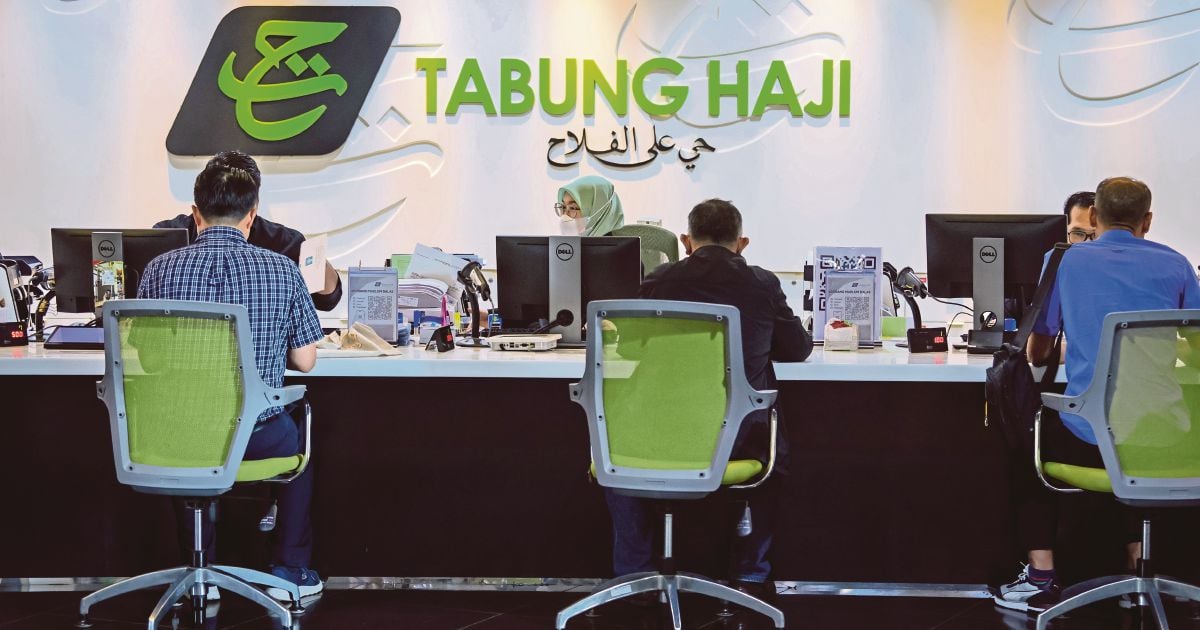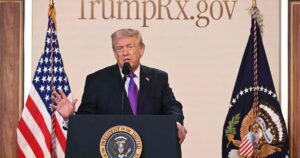KUALA LUMPUR: Lembaga Tabung Haji chairman Tan Sri Abdul Rashid Hussain has outlined a vision for the institution’s long-term financial sustainability with a revised governing act at its core.
He stressed the urgent need to realign the fund’s operational model by strengthening its depositor base, improving cost-of-funds management and implementing regulatory reforms to support responsible long-term investments.
Abdul Rashid, the RHB Group founder who was recalled into the corporate scene to helm Tabung Haji in December 2023, said institutional survival and more importantly, depositor trust hinges on a sturdy legal foundation.
At the heart of the vision lies one critical element: the Tabung Haji Act 1995 (Act 535), which he feels must evolve to sustain the fund’s long-term stability.
Why Tweak The Act?
A core challenge identified by the chairman is the structural mismatch between short-term deposits and long-term investment strategies.
Abdul Rashid cautioned that this imbalance poses risks to liquidity and undermines the fund’s ability to pursue stable, growth-oriented investments.
Tabung Haji has nearly RM95 billion in deposits from about 9.6 million depositors, as well as RM96 billion in assets.
“You cannot responsibly invest long-term if your depositors can withdraw their funds tomorrow,” Abdul Rashid told reporters last week.
Institutional resilience, he said, depends on a legal framework that allows prudent measures – like deposit lock in periods – to safeguard long-term investments from short-term withdrawals.
Without such legal tools, even the most well-intentioned strategies can crumble, he added.
This comes amid active reforms as the Finance Ministry had reportedly announced plans to revise the Tabung Haji Act 1995 (Act 535).
The goal is clear – to fortify governance, integrity and depositor protection in a changing financial landscape.
What The Current Act Covers
Enacted in 1995, Act 535 provides a legal framework for Tabung Haji’s multifaceted role – even governing everything from deposit and investment rules to licensing pilgrimage operators.
It explicitly guarantees depositors’ savings, reinforcing public confidence.
However, as Tabung Haji’s operations evolve – from managing massive funds and serving millions of depositors to shouldering broader liquidity and governance challenges – the act is increasingly seen as behind the times.
Crucial Role Of Legal Reform
Some key areas where the act must be refreshed:
* Introducing withdrawal notice periods for certain deposit accounts to enhance liquidity management.
* Exploring external regulatory oversight, possibly through the Securities Commission or other relevant authorities.
* Ensuring the act allows sufficient governance flexibility to meet modern operational standards.
Abdul Rashid said Tabung Haji’s developmental mandate comes with financial trade-offs, particularly when offering subsidised services or socially-focused programmes.
A declining deposit base leads directly to higher funding costs, which in turn distorts the fund’s ability to operate efficiently.
When the deposit base shrinks, costs rise, subsidies are distorted and financial pressure increases across the board, he added.
As such, improving cost discipline and stabilising inflows are key pillars of the fund’s strategic roadmap.
Abdul Rashid emphasised that while faith is a central component of hajj, affordability must remain a guiding principle.
“You only go to hajj when you can afford it,” he said, acknowledging the religious expectation for support but balancing it with financial realities.
He noted that the hajj subsidies are being reviewed and will be gradually reduced in the coming years. This aligns with efforts to ensure that depositors’ returns are not compromised in the long term.
If subsidies remain high without sufficient fund performance, depositors could suffer from diminished returns, potentially creating a vicious cycle where Tabung Haji struggles to retain or attract new savings.
Despite a dip in financial returns, Tabung Haji maintains significant subsidies for hajj pilgrims, especially those from B40 households.
In the most recent hajj season, the B40 group received an average subsidy of 55 per cent on hajj costs.
M40 group received a 29 per cent subsidy, with the remainder paid out-of-pocket, while higher-income groups were expected to fully cover the hajj cost themselves, which is RM33,300.
‘Buck Stops With Me’
Eighteen months into his tenure, Abdul Rashid, now at the age of 78, is clear about one thing: he prefers to be judged not by intentions, but by results.
He takes full responsibility for the current state of affairs, affirming his leadership and commitment to reform. “The buck stops with me.”
As a former corporate leader, he described his transition into this role as a personal and spiritual mission, not a political move.
“This initiative is mine. I’ve come out of retirement to serve. I’m not here for personal gain. This is about faith and responsibility,” Abdul Rashid added.
“Judge me not by what I say, but by what I deliver at the end of my term,” he said, reiterating that his vision is to establish a stable foundation for the fund’s future.
“Let time decide when my term concludes. Have I moved the needle?” he asked.
© New Straits Times Press (M) Bhd






